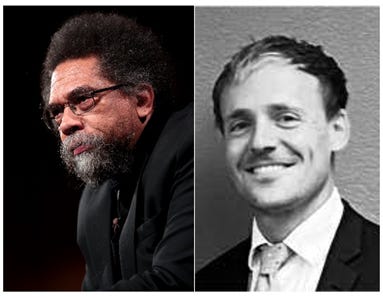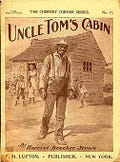Imagine you’re reading a book and it’s making you uncomfortable. Maybe it promotes ideas you think are wrong and offensive. Maybe it contains outdated assumptions or stereotypes. Maybe it seems to perpetuate a historical privilege that’s been afforded to members of certain groups. Should you put the book down? Should you even try to prevent others from reading it, especially if they’re children or young adults? Or should you keep reading?
Whether to read books like this is a hotly-contested issue these days. For example, earlier this year we learned that certain of the Dr Seuss books would no longer be published, on the grounds that they “portray people in ways that are hurtful and wrong.” We were then treated to a rather pointless debate about whether this meant these books were being “cancelled”—they weren’t, because it was Dr Seuss Enterprises’ own decision—which overlooks the moral signal sent by this decision, a signal that these works are actively harmful and don’t deserve to be read.
I’m going to call these “problematic” books, and I’m going to distinguish them from works that are actively evil, like Adolf Hitler’s Mein Kampf or the Christchurch shooter’s manifesto. Those writings are beyond the pale and not fit for general consumption. But there’s a fair distance between Mein Kampf and Scrambled Eggs Super, and I’m interested here in the 99.99% of literature that’s not Mein Kampf or its ilk, and the increasing proportion of works falling into a grey, censorious no-man’s land.
I want to argue that these problematic books—in the margins, but not beyond the pale—don’t deserve to be cast out. In fact, I want to give four reasons to think that there’s a place for them on our shelves and that reading them may even be good for us.
First, and fairly obviously, not every book treated as problematic deserves that stigma. This is most clearly the case when entire fields are dismissed, as is sometimes the case with the texts taught in “Western Civ” or the classics. For example, responding to Howard University’s recent decision to disband its Classics Department, Professor Cornel West and Jeremy Tate wrote:
Sadly, in our culture’s conception, the crimes of the West have become so central that it’s hard to keep track of the best of the West. We must be vigilant and draw the distinction between Western civilization and philosophy on the one hand, and Western crimes on the other. The crimes spring from certain philosophies and certain aspects of the civilization, not all of them. …
The Western canon is an extended dialogue among the crème de la crème of our civilization about the most fundamental questions. It is about asking “What kind of creatures are we?” no matter what context we find ourselves in. It is about living more intensely, more critically, more compassionately. It is about learning to attend to the things that matter and turning our attention away from what is superficial.

Second, problematic books can offer an opportunity to learn about others—their time, their experiences, their views. Some books are problematic because, like most things in life, they’re a mixture of good and bad. Take Uncle Tom’s Cabin. The term “Uncle Tom” has passed from this 1855 novel into popular usage to denote a subservient African-American man, due in part to patronising and racist tropes that the book employs in places. But if this was all you knew of Uncle Tom’s Cabin, and if you refused to read it as a result, you would be missing the main point of the book. Tropes notwithstanding, the novel is a full-throated affirmation of the equal dignity and value of every person and “a vicious polemic against slavery,” according to former Guardian editor, Gary Younge. He goes on to say:
Within the confines of its age then, Uncle Tom's Cabin was a progressive text, exerting an influence which few works of literature have done before or since, into the political debate of the time. The problem is that the confines of its age are very narrow indeed. … its failure to transcend its age is what made it vulnerable to caricature and criticism at a later date.
During the American Civil War, President Lincoln apparently greeted the author, Harriet Beecher Stowe, by saying, "So you're the little woman who wrote the book that made this great war." That her arguments for equality needed to be made, that they could be a catalyst for war, and that they succeeded, illustrates the evil of slavery and the moral accomplishment of abolition. That the arguments were made imperfectly illustrates the limitations of that triumph and the defects of imagination of those who made them. Understanding both the racism and the anti-racism of Uncle Tom’s Cabin helps us understand that world and that time better.
Third, problematic books can offer an opportunity to challenge our assumptions. This is the case with books that make arguments we find troubling or even offensive. Confronted with these books, we could avert our gaze and hurry on by. Or, we could accept the challenge to reflect on our beliefs and maybe learn something in the process. For example, the eighteenth-century Enlightenment philosopher, David Hume, was an avowed sceptic of religion, dubbed in his time “the Great Infidel.” His Natural History of Religion argues: “Examine the religious principles, which have, in fact, prevailed in the world. You will scarcely be persuaded, that they are any thing but sick men’s dreams …” As a Christian, I have a different view about religious principles. But Hume’s arguments, and the shaping force the seventeenth-century Wars of Religion exerted on his and others’ thought, helps me see the deadly excesses and misuses of religion more clearly.
Fourth, and perhaps most importantly, problematic books can teach us humility and help us avoid “chronological snobbery”. This might seem counter-intuitive—wouldn’t reading something flawed make us proud about how far we’ve come since those benighted people wrote those awful things, proud of our morally advanced state? In fact, C.S. Lewis called this attitude “chronological snobbery,” meaning, “the uncritical acceptance of the intellectual climate common to our own age and the assumption that whatever has gone out of date is on that account discredited.”
The antidote to this attitude lies in recognising that those benighted people thought, in their day, that they too were morally advanced. Just as they had blind spots, so do we. We might struggle to see them—that’s the nature of blind spots—but when we recognise that others have them we have a better chance of recognising that we must have them too, that we are as benighted as they were if only we could see it. Just as we look askance at things previous generations took for granted, so our descendants might wonder how we could have failed to see the logs in our own eyes, like consumerist ways of life built on the pattern of child labour and forced labour, or the way commercial surrogacy commodifies women and children.
I’ve argued that we have a lot to gain from reading “problematic” books, but we’ll only realise those gains if we read them critically. That means reading thoughtfully—knowing something about the context the book was written in, trying to identify the author’s assumptions, understanding why the book was written and who it was for. It means critiquing when we need to critique and rejecting when we need to reject, but not rushing headlong to do either. As West and Tate say, we must all learn to “confront the fact that human existence is not easily divided into good and evil, but filled with complexity, nuance and ambiguity”. Reading this way can become part of a moral education.
Problematic books don’t have to be read in isolation or received in silence—indeed, they shouldn’t be. West and Tate refer to the Western canon as “a conversation,” beneficial because it contains a multitude of voices. It is, they say:
a conversation among great thinkers over generations that grows richer the more we add our own voices and the excellence of voices from Africa, Asia, Latin America and everywhere else in the world. We should never cancel voices in this conversation, whether that voice is Homer or students at Howard University.
If we’re willing to enter that conversation, using our own intellect and contributing our own voice, we might just find that problematic books have much to teach us.



